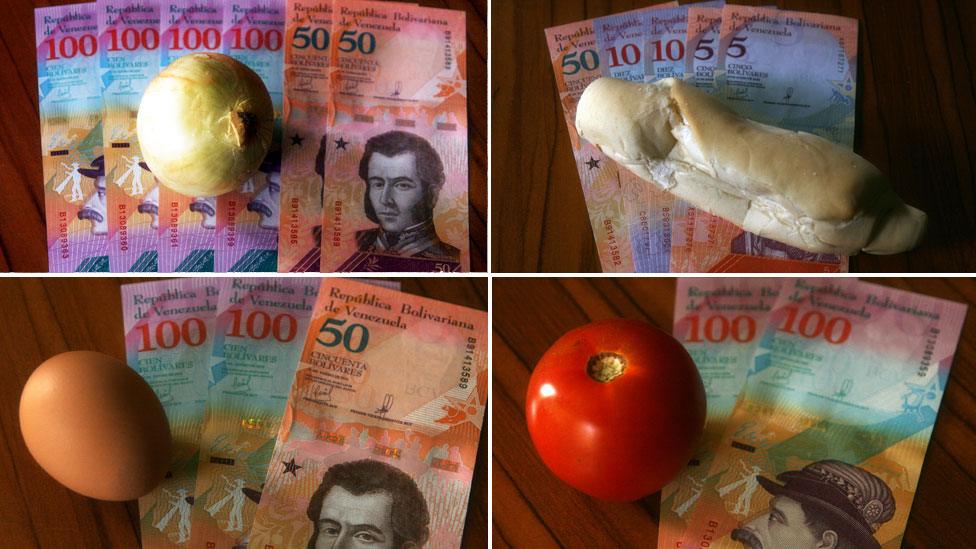Venezuela: 'Why you grow old quickly here'
- Published
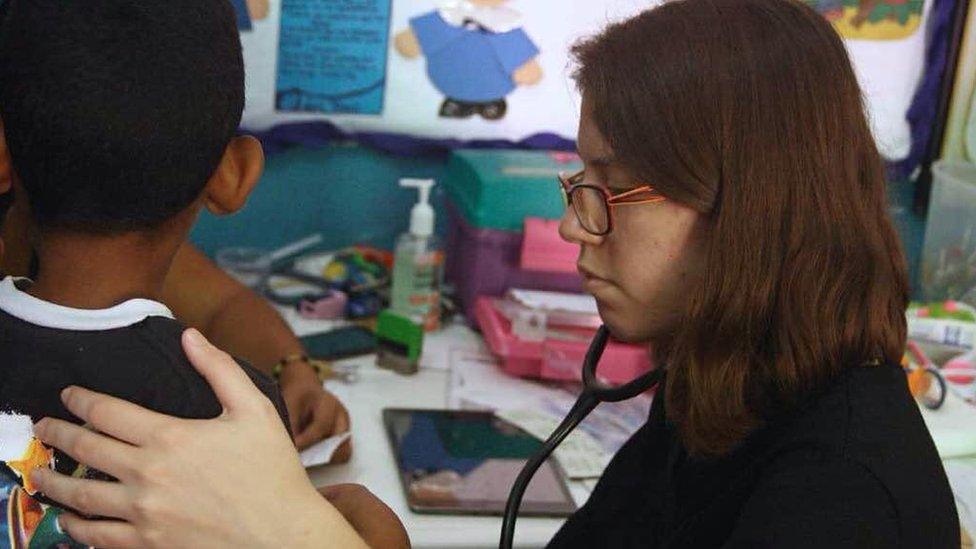
19-year-old Julia Castro is studying to be a doctor and spends most days helping people in need
Wherever Julia Castro walks, no matter what time of the day, she has to constantly check over her shoulder.
"You are never certain of anything - you go out in the morning, and things can change in a moment."
The 19-year-old medicine student is living in the grip of a humanitarian crisis in Venezuela.
Skyrocketing inflation is destroying people's lives - basic items such as food, medicine and toiletries are unaffordable.
Combined with huge political unrest and uncertainty, the country is being pushed to the brink.
Julia lives in El Cafetal in the east of the capital of Caracas.
"It was not known as a dangerous area but people come here to go through garbage bags for food.
"If someone calls you on your mobile phone, it's scary because if people see you have one, it can be stolen."
Julia says these people aren't bad or mean - they're "just trying to survive".
Survive is a word that isn't used loosely by people in Venezuela.
This is a country where a study has found that nine out of 10 people can't afford their daily food.
Malaria has also come back more than fifty years after it was one of the first places to eliminate the disease.
Julia works with a charity to deliver medical care, and says: "Middle class people, poor people, believe me everyone is going through hard times here."
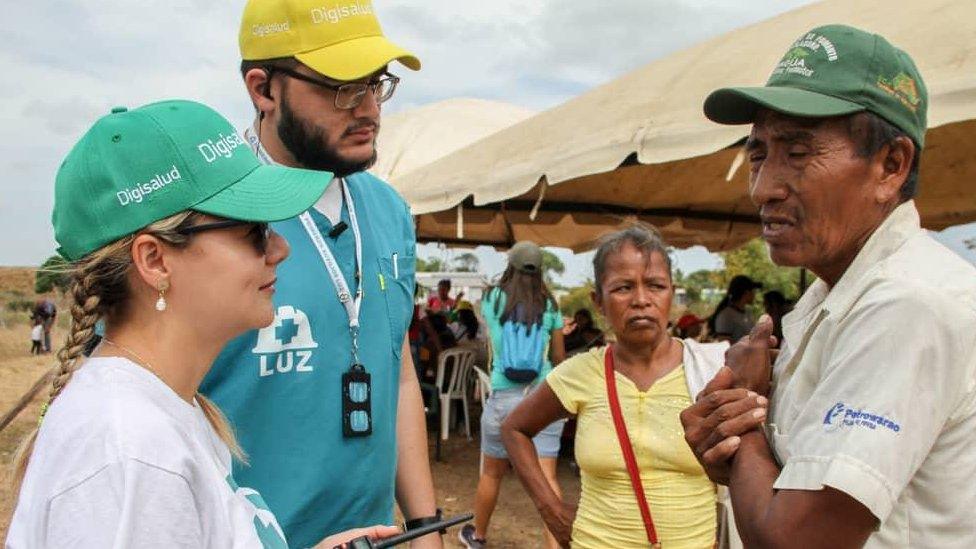
23-year-old Giovanni Varela runs an organisation that helps to deliver free medical care for people in Venezuela
23-year-old Giovanni Varela is also a medical student who is based in Maracaibo city, Zulia state.
"For young people, Venezuela is a country where you have to grow old very quickly.
"You can't do what young people should be doing - there aren't many opportunities to have fun.
"There are 14 and 15-year-olds already working to bring food and money home."
Two years ago he set up an organisation called Primeros Auxilios LUZ to provide free healthcare.
"The main fear people have here is getting sick or even if they are pregnant.
"It's frightening because doctors don't have gloves for a normal examination, no medicines, no gauzes for normal wounds, no solutions."

Five facts about the Venezuela crisis
Used to have Latin America's richest economy due to oil reserves - but as prices came down, the economy crashed.
Corruption and huge national debts made things worse
By the end of 2018, prices were doubling every 19 days on average
$1 US = 637 bolivars
More than three million Venezuelans have fled their country over recent years, blaming hunger, lack of medical care, rising unemployment and violent crime.
Source: BBC Monitoring / Venezuela National Assembly Consumer Prices / The Economist

Giovanni gives a very stark sense of how desperate the situation has become.
"I speak everyday to people who are eating worms - because there is no food!"
Getting food is possible if you have the money - like Giovanni and Julia's families.
But the prices are above the normal rate.
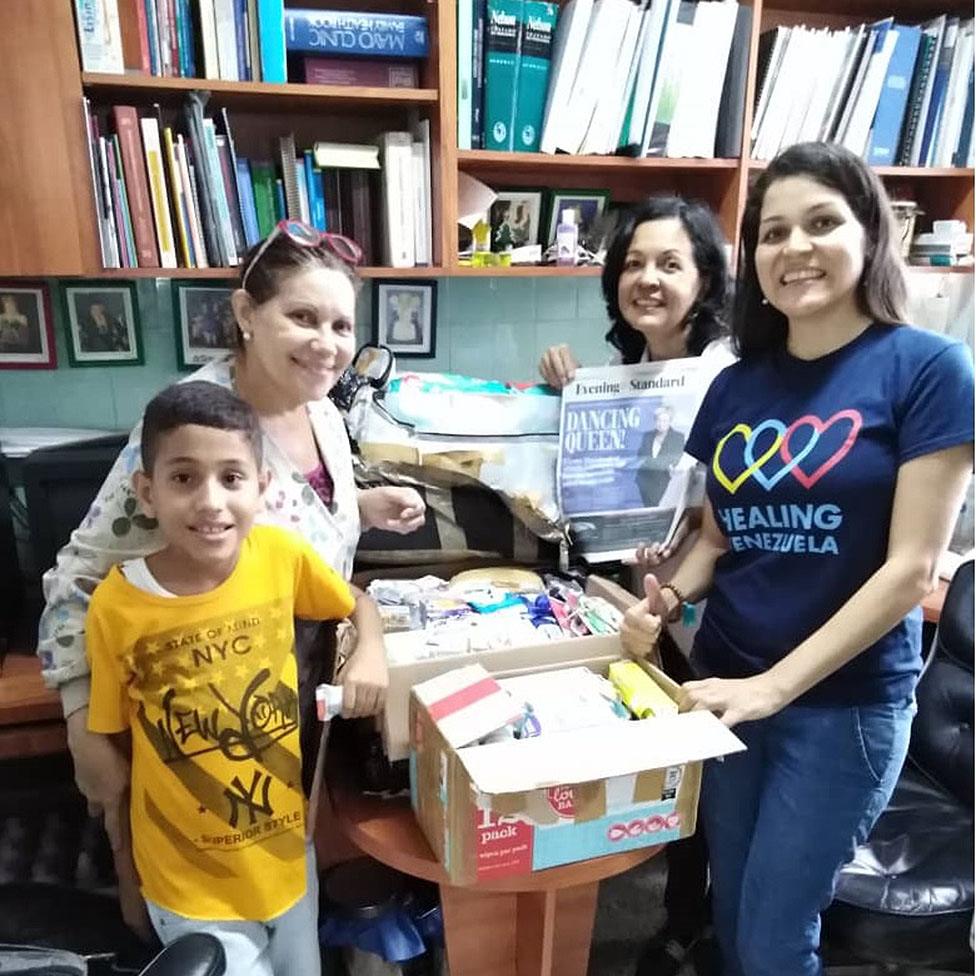
Venezuelans receiving supplies from UK charities show a British newspaper as proof
The overall situation is so dire that there is huge reliance on fellow Venezuelans abroad.
They include people like Cinzia De Santis - who came to the UK 15 years ago - to escape the political unrest that was happening even back then.
She runs a small charity Healing Venezuela which sponsors health programmes and collects medical supplies to send back.
"Bandages, cutting scissors, blood pressure, old ultrasound machine equipment - we ship by boat.
"From every point of view, health is a dramatic situation."
She says watching the crisis unfold is hard.
"For me being here in UK, it's like living two lives - my heart and mind are with people and family there in Venezuela."
Venezuela's hyperinflation: Stacks of cash for loo roll
Mariana Siblesz and Maria Antonieta Rodriguez are also in the UK watching from afar.
Maria says they "never thought it would get this bad".
Their organisation - Chamos Charity - is dedicated to providing education for children but in recent years their plans have changed.
"We focus on health, food and very basic things now," according to Mariana.
But Cinzia, Mariana and Maria say there is only so much they can do and that bigger organisations need to help Venezuelans.
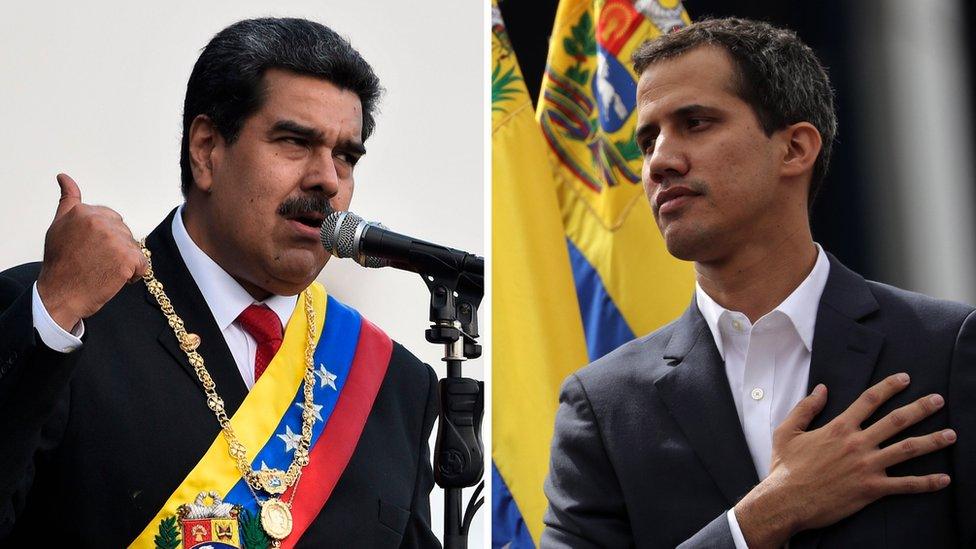
A power struggle between President Maduro (L) and opposition leader Juan Guaidó is fuelling the unrest
Back in Venezuela, Giovanni and Julia see it like this too.
"We want to help everyone and whilst we're not the solution to the problem, we can try to change lives a bit."
They've also seen friends leave the country. Are they tempted?
Giovanni doesn't debate this: "I love Venezuela I won't leave.
"I want to stay and be part of the reconstruction of my country."
However Julia admits she wrestles with that dilemma every day but for the moment wants to remain.
"Even when people get pessimistic we all try to look at the best part of life.
"Venezuelans have a fighting spirit, we believe it's going to get better.
"We have hope."
Follow Newsbeat on Instagram, external, Facebook, external and Twitter, external.
Listen to Newsbeat live at 12:45 and 17:45 every weekday on BBC Radio 1 and 1Xtra - if you miss us you can listen back here.
- Published12 August 2021
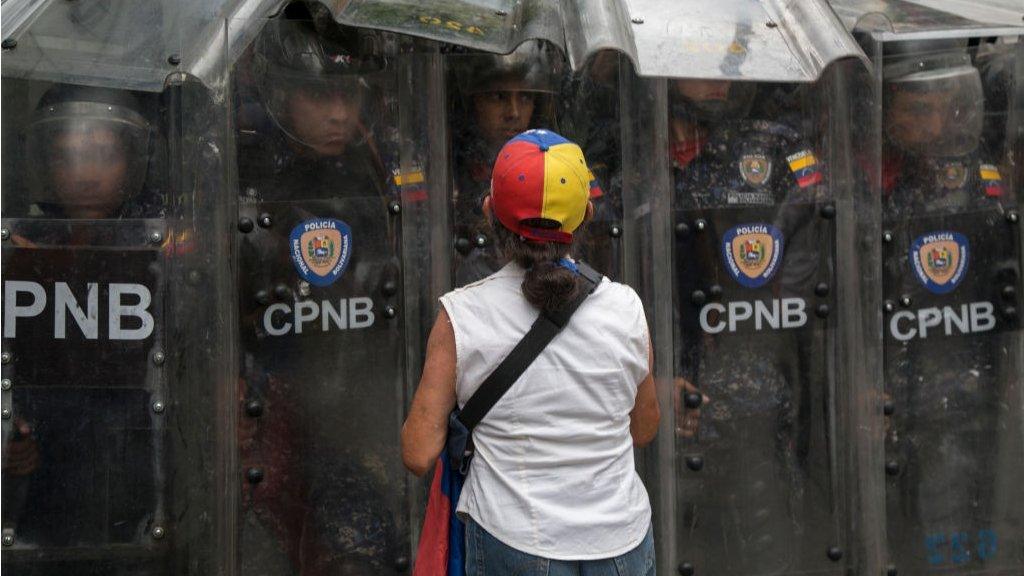
- Published5 February 2019
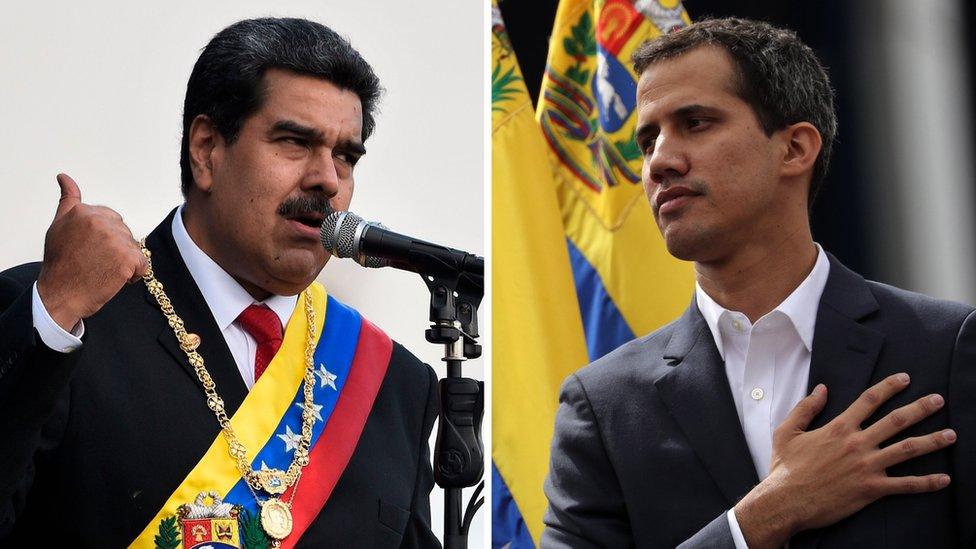
- Published4 February 2019
